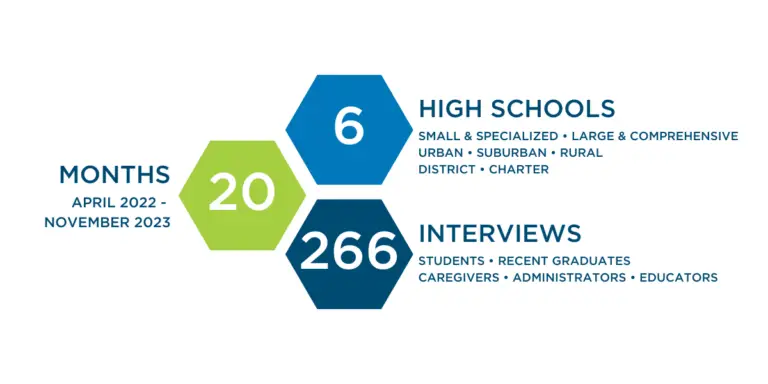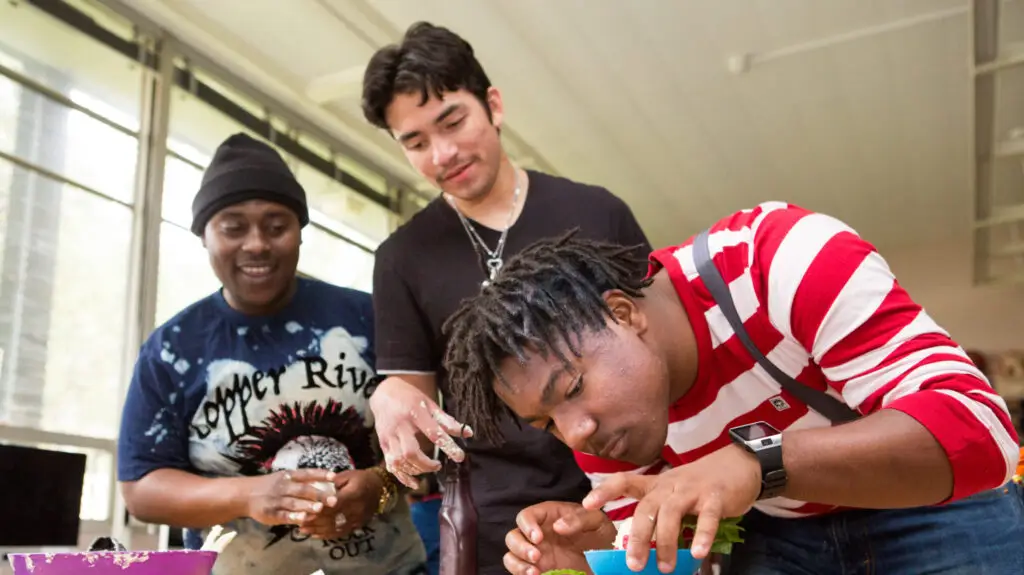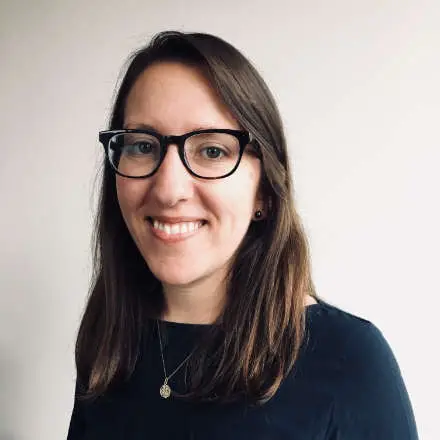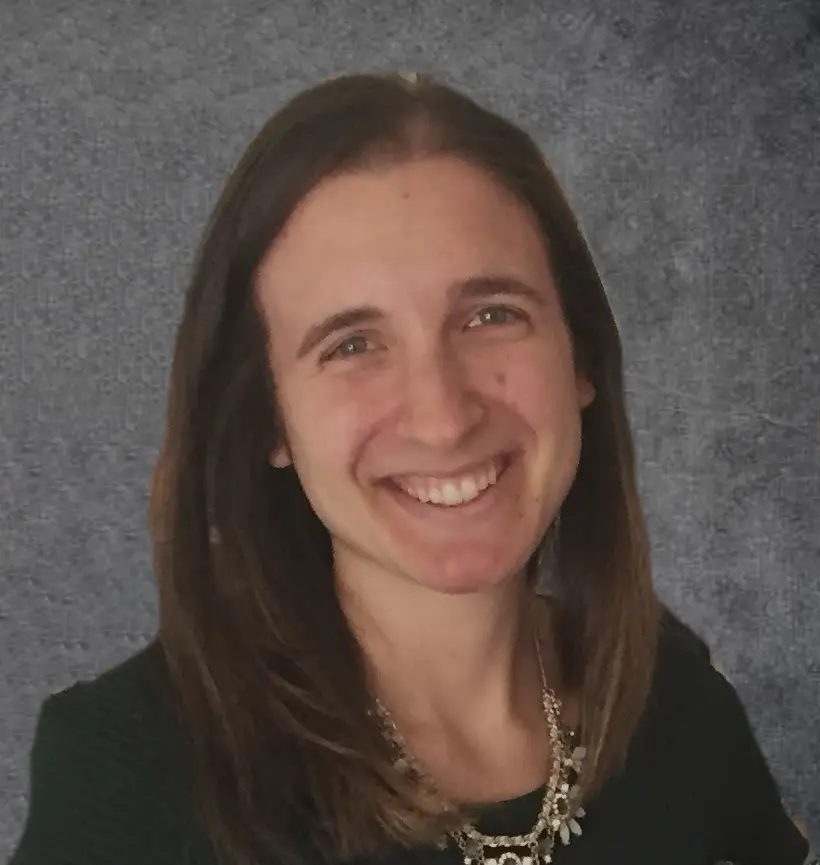CRPE & CPRL hosted a webinar on this report with the co-authors and report stakeholders. Check it out!
Can the lessons schools learned in the Covid-19 recovery period contribute to more lasting, transformative shifts in high school?
Researchers from CRPE and the Center for Public Research and Leadership (CPRL), with support from the Barr Foundation, studied a group of New England public high schools during the pandemic recovery period to explore this question and hear directly from students and adults about their experiences.

The interviews yielded a resounding message: High schools should prepare young people not just for college or work, but to live a “good life” on their own terms—to be fulfilled, happy adults with stable, family-sustaining incomes, strong communities, and choices about which opportunities to pursue.
That vision represents a subtle but significant shift away from the “college for all” rallying cry. Instead of assuming college enrollment is the best path for any student, schools in the study were focused on helping students set their own goals and develop a high-quality post-secondary plan to achieve them. At the same time, schools grappled with how to ensure this shift would not revert back to inequitable patterns based on assumptions about which students are best suited to each path.
The study also revealed strategies schools were using to be responsive to students’ individual circumstances and challenges, especially historically marginalized groups. But some educators and students raised concerns that too much flexibility could result in less rigor and lower expectations. The researchers argue that schools need strategies that make it possible for each student to achieve what can feel hard, not strategies that make what’s hard easier.
The report presents a set of recommendations for educational leaders and policy makers at the state and local levels – along with caregivers, employers, higher education, and other community partners – to help schools overcome barriers and think more broadly about how best to prepare graduates for a variety of paths to success after high school.







“I have expensive dreams.” Preparing students for college and career in the face of widening equity gaps
Sarah Carr
Guest Author